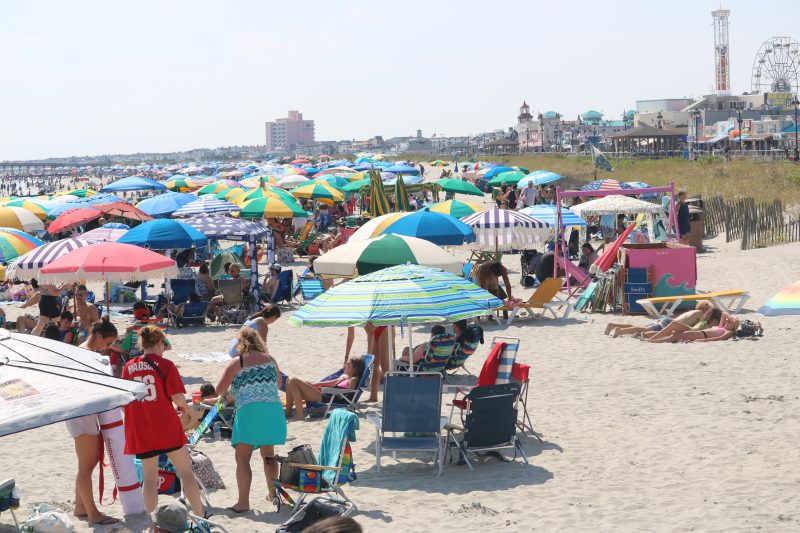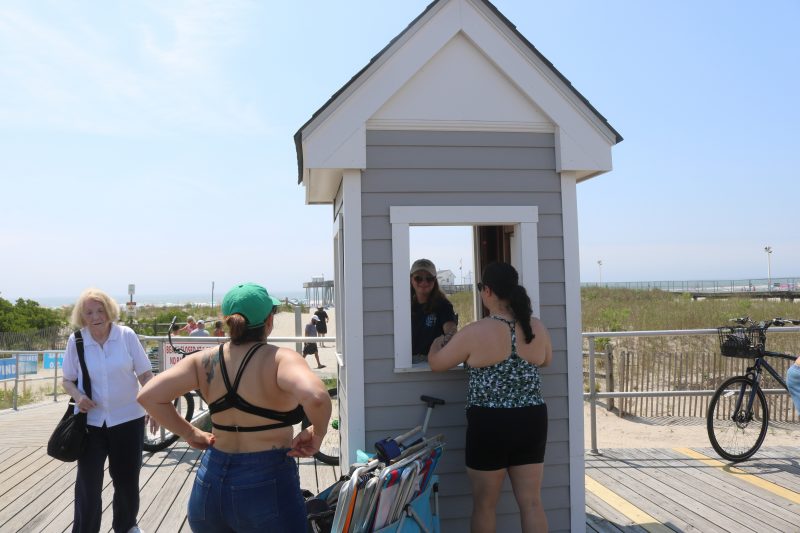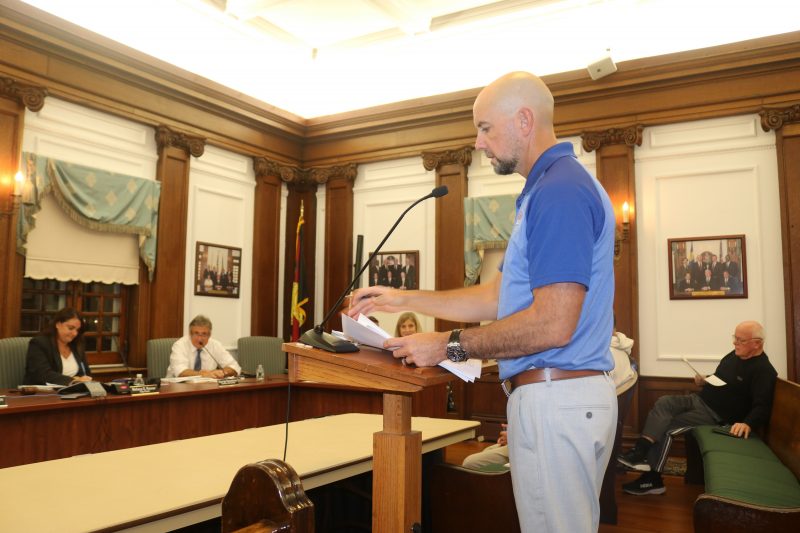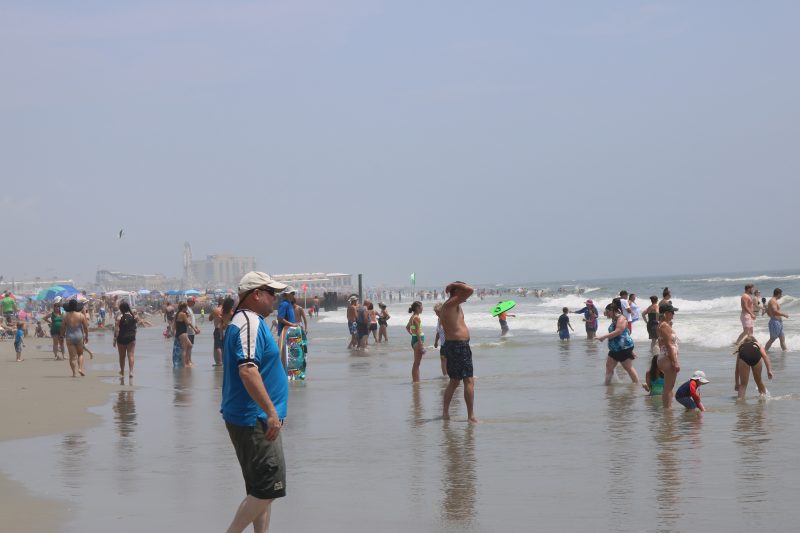Fewer beach tags sell in the summer of 2023, but with an increase in fees, the end result is still a boost.
 By MADDY VITALE
Ocean City sold fewer beach tags this summer, but revenue jumped more than 50 percent overall due to a price increase, according to figures released Thursday.
Beach tag sales often serve as a major factor when determining how strong a summer season is for a shore town. Over the past few years, Ocean City’s beach tag sales have remained strong. The summer of 2023 was robust in terms of revenue, officials said, due to an increase in fees.
The total beach tag revenue for the season was $6,089,390, a 52.5 percent increase over 2022 revenue, Ocean City Public Information Officer Doug Bergen said.
The increase in the cost of beach tags made a difference in what types of tags beachgoers bought.
“The price increase that went into effect for 2023 is the primary factor in the changes from year to year in both revenue and number of tags sold. The greatest percentage change was in weekly tags,” Bergen said while pointing out that the weekly tags were $20. “It appears as if those beachgoers may have opted to spend the extra $15 for a seasonal tag, $30 pre-season and $35 in-season.”
By MADDY VITALE
Ocean City sold fewer beach tags this summer, but revenue jumped more than 50 percent overall due to a price increase, according to figures released Thursday.
Beach tag sales often serve as a major factor when determining how strong a summer season is for a shore town. Over the past few years, Ocean City’s beach tag sales have remained strong. The summer of 2023 was robust in terms of revenue, officials said, due to an increase in fees.
The total beach tag revenue for the season was $6,089,390, a 52.5 percent increase over 2022 revenue, Ocean City Public Information Officer Doug Bergen said.
The increase in the cost of beach tags made a difference in what types of tags beachgoers bought.
“The price increase that went into effect for 2023 is the primary factor in the changes from year to year in both revenue and number of tags sold. The greatest percentage change was in weekly tags,” Bergen said while pointing out that the weekly tags were $20. “It appears as if those beachgoers may have opted to spend the extra $15 for a seasonal tag, $30 pre-season and $35 in-season.”

 Frank Donato, the city's chief financial officer, explains the then-proposed beach tag price increase to Council in October.
Beach tag revenue by statute, must be spent in maintaining and protecting the beach for such things as Ocean City Beach Patrol lifeguards, beach tag inspection staff, daily beach raking and cleaning operations, beach mats and other accessibility amenities and local share of beach replenishment projects, Bergen said.
Back in October, Ocean City’s Chief Financial Officer Frank Donato explained at a City Council meeting that the increase in beach tag prices was needed due to rising costs for the city to maintain, clean and protect the beaches.
“The additional revenue allowed us to keep taxes stable this year by helping to pay for additional costs in beach maintenance, replenishment costs, and lifeguard salaries,” he said during his report at the Oct. 6 City Council meeting.
Ocean City has had beach tags since 1976 and they are required from Memorial Day to Labor Day.
Ocean City annually leads all New Jersey shore towns in beach tag sales because of its sheer size. The city’s 7-mile-long beachfront is much bigger than neighboring towns, allowing it to handle enormous summer crowds that can swell to about 150,000 people, compared to the year-round population of about 11,200.
Frank Donato, the city's chief financial officer, explains the then-proposed beach tag price increase to Council in October.
Beach tag revenue by statute, must be spent in maintaining and protecting the beach for such things as Ocean City Beach Patrol lifeguards, beach tag inspection staff, daily beach raking and cleaning operations, beach mats and other accessibility amenities and local share of beach replenishment projects, Bergen said.
Back in October, Ocean City’s Chief Financial Officer Frank Donato explained at a City Council meeting that the increase in beach tag prices was needed due to rising costs for the city to maintain, clean and protect the beaches.
“The additional revenue allowed us to keep taxes stable this year by helping to pay for additional costs in beach maintenance, replenishment costs, and lifeguard salaries,” he said during his report at the Oct. 6 City Council meeting.
Ocean City has had beach tags since 1976 and they are required from Memorial Day to Labor Day.
Ocean City annually leads all New Jersey shore towns in beach tag sales because of its sheer size. The city’s 7-mile-long beachfront is much bigger than neighboring towns, allowing it to handle enormous summer crowds that can swell to about 150,000 people, compared to the year-round population of about 11,200.
 Swimmers beat the heat in July.
Swimmers beat the heat in July.